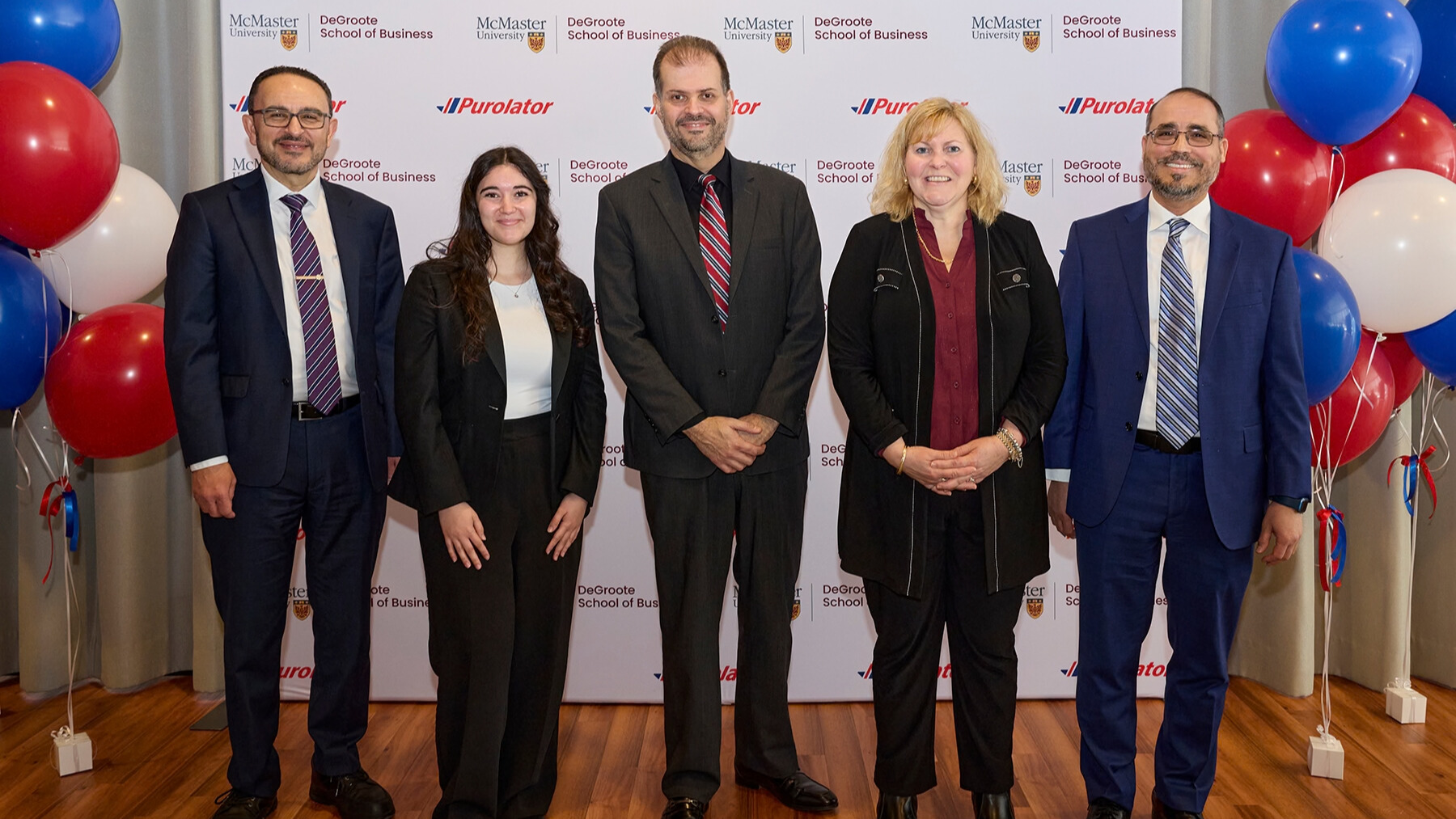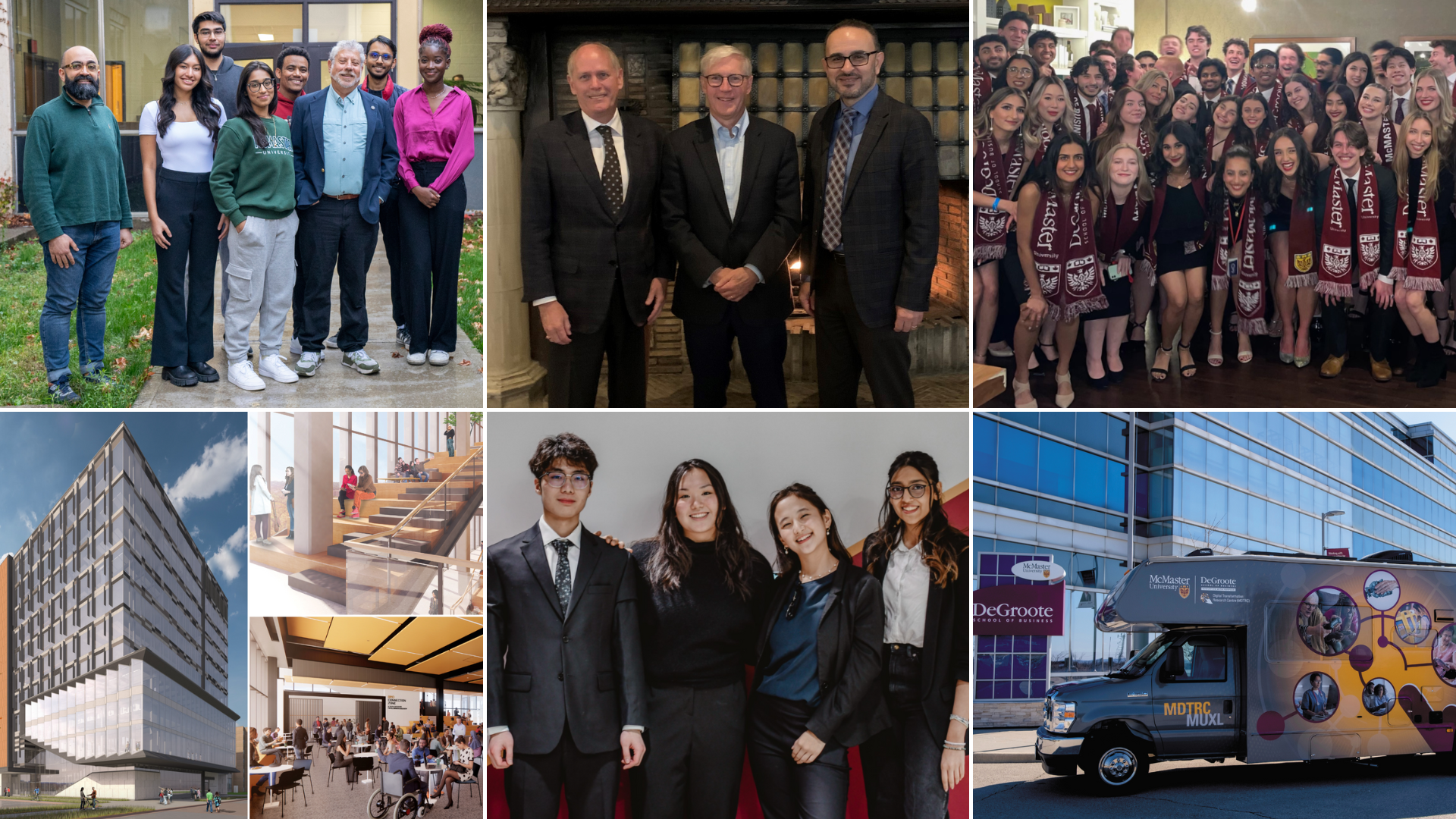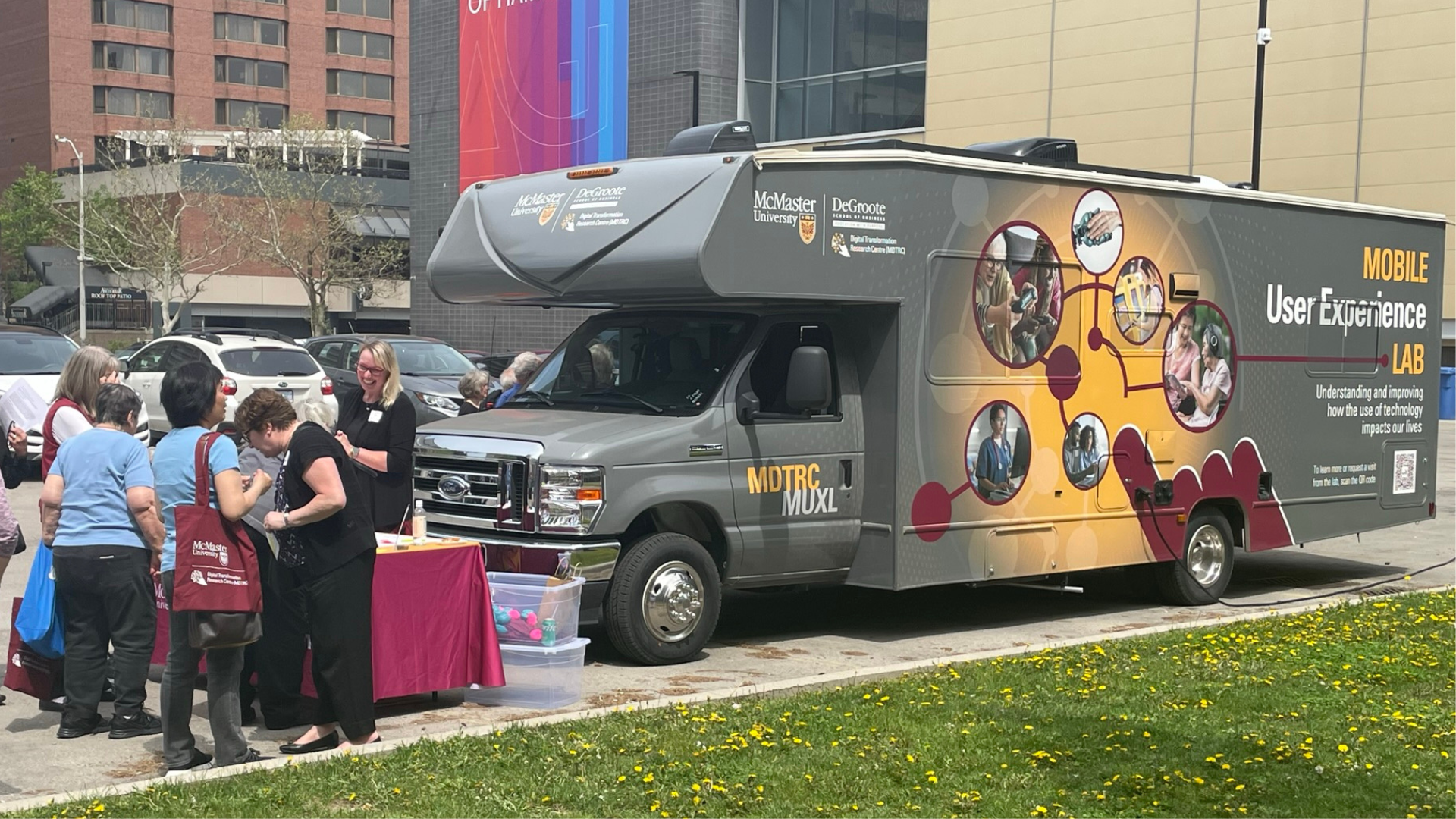OPERATIONS MANAGEMENT RESEARCH STAFF
How improving EDI policies can address the labour shortages in trucking/transportation
February 24, 2022 ·
Contributed by: Izabela Shubair, DeGroote Contributor

In his role as professor of Operations Management at DeGroote, Elkafi Hassini had students in his classes tell him their parents worked in transportation and warned them to stay away from the industry. During conversations with various trucking organizations, he discovered companies were having trouble filling driver vacancies. While sitting on committees such as the Natural Sciences and Engineering Research Council of Canada (NSERC), Hassini engaged in dialogue about equity, diversity, and inclusion (EDI). When Hassini took stock of these interactions, he soon discovered his latest research interest.
Led by Hassini, who also serves as the chair of the Smart Freight Centre (SFC), and Mehdi Nourinejad of York University, the research focuses on labour demographics and dynamics. This includes strategies for addressing labour shortages and lack of diversity in the freight and logistics labour force with a particular focus on barriers and challenges experienced by youth, women, and racialized minorities.
“There is little research in that area, and I think there’s more interest in EDI now,” says Hassini. “The closer I got to the topic, I heard about instances of mistreatment. It’s really time to be inclusive in that industry. So, we’re trying to do our best to look at the issues and how we can help from the research perspective.”
In its early stages, the research is among 24 projects being conducted through City Logistics for the Urban Economy (CLUE). The SFC research program is a multi-university, multi-sector partnership that is working strategically to tackle goods movement issues and address an interrelated set of challenges and opportunities arising from industry trends.
“When we started last summer with this research, we found that sometimes there’s ambiguity around some of the EDI concepts such as equity, equality, and fairness,” says Hassini. “What’s the difference? And how do we distinguish between those? We thought it is important that we start on common grounds when it comes to the basic terminology and then explore its implications for the freight transportation sector. We’re also planning to do a workshop to have a conversation with practitioners and understand their needs and how we may measure their EDI efforts. Our goal is to come up with some standard tool for assessing EDI that we can share with trucking and logistics companies to use for benchmarking and improving their EDI practices.”
By identifying metrics for measuring EDI in the freight transportation industry and devising a rating system for EDI in the sector, Hassini says he hopes the research can contribute to major issues that companies face. Among them are a driver shortage and attracting younger employees. According to a Trucking HR Canada report, the country is expected to be short 25,000 truck drivers as early as 2023, representing a 25 per cent increase over the unfilled vacancies in 2019.
“In conversations I had with the Ontario Trucking Association, I heard that companies are having some difficulty in attracting young drivers,” says Hassini. “Most of the drivers are aging and there are concerns trucking companies can’t get a new generation of drivers. There’s a need for hiring labour, but there is lack of interest in certain jobs. We are hoping our research on labour dynamics will help in resolving this mismatch of supply and demand for labour in the freight industry. It’s very hard to put a reason to why we have a mismatch. I think part of it is the working conditions are not favourable to aspiring youths. Part of the initiatives we’re looking at is how to be more inclusive in this industry such as inviting a driver to be part of the decision making in choosing the best delivery route.”
To begin to publicize their EDI work, Hassini’s research partner, Nourinejad, recently presented an overview of their project during SFC’s third annual Smart Freight Symposium. A two-day virtual event hosted by DeGroote in November, the Symposium featured speakers from government and industry leaders and non-profits as well as updates from university researchers on goods movement.
“That’s really the principle behind the Symposium, that we all learn from each other, whether it’s what’s happening in industry, what companies are dealing with in terms of challenges, or governments in terms of policy, and some of the issues that they may want us to incorporate in our research,” says Hassini. “Then from the university side, we present what we’re working on, and how it relates to their challenges. Everyone that’s associated with SFC appreciates working on problems like EDI that are so relevant.”
The event’s first session was entirely devoted to EDI, with three women leaders discussing topics that ranged from personal experiences in EDI and the current state of EDI in Canada’s transportation and logistics industry to EDI’s value in the workplace. Dale Lynch, team leader of the Ontario Ministry of Transportation’s System Policy Office, moderated the session. He says events such as the Symposium provide an outlet to advance crucial topics.
“I think these events are opportunities for organizations to reflect on their people and processes in a learning environment,” Lynch says. “Intersectionality is needed to have fresh perspectives. It has to be part of everyone’s ongoing work to improve meaningful representation and participation. By fostering partnerships that intentionally include a variety of people, more people will feel that they’re part of solving the challenges that impact everyone.”















